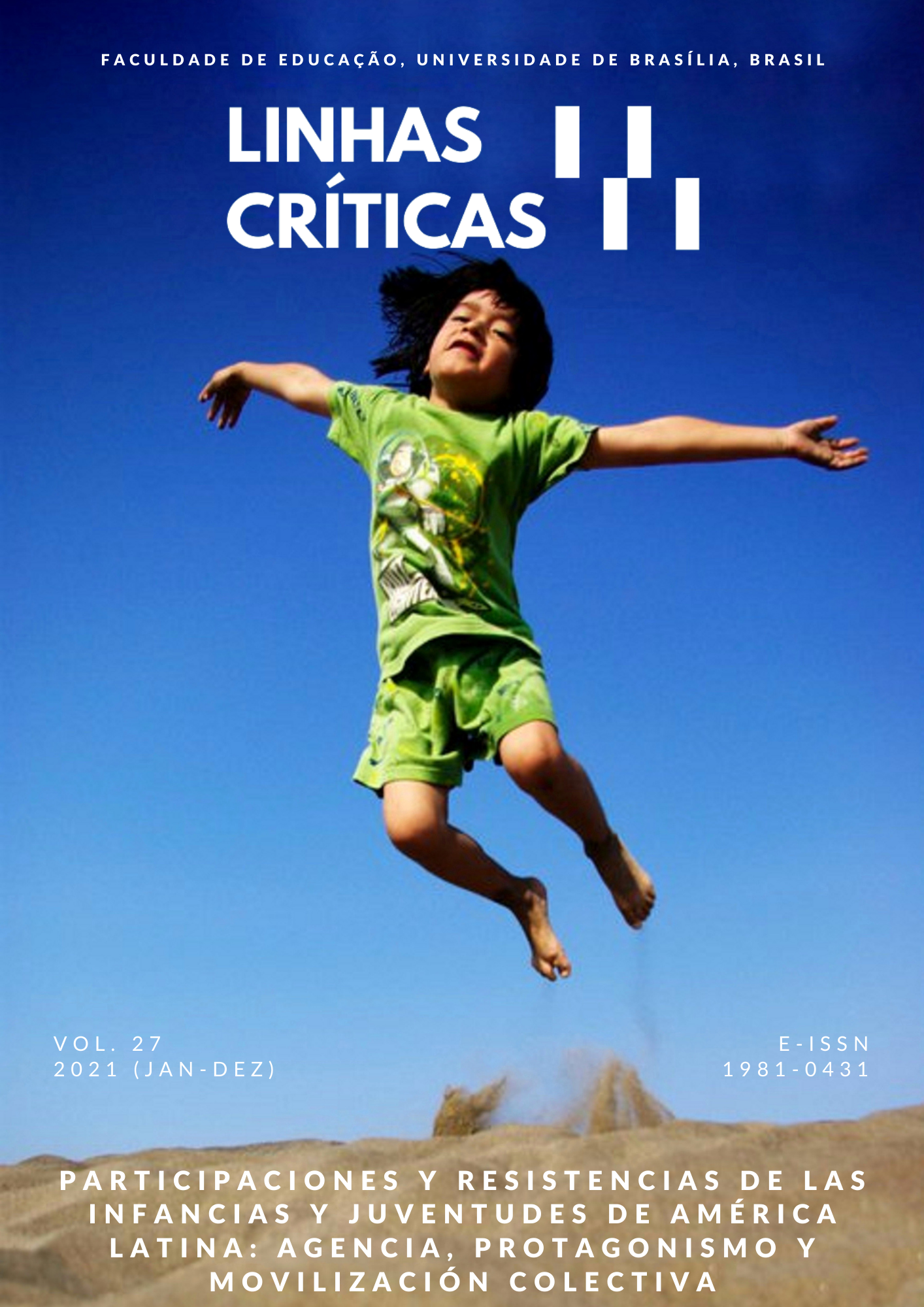The role of the class council for the organization of pedagogical work
DOI:
https://doi.org/10.26512/lc.v27.2021.34603Keywords:
Class council, Organization of pedagogical work, Formative evaluationAbstract
Based on the assumption that the discussions and processes in the class council interfere with the teaching practices of the teacher in the classroom, this study has the general objective of analyzing the contributions of the class council meetings to the organization of the pedagogical work. The qualitative approach research was developed through a Case Study. For data collection documentary analysis was used, observation of the class council and semi-structured interview. The findings indicate that the logic of classificatory and excluding evaluation that guides the class council influences the pedagogical work of the teacher in the classroom.
Downloads
References
Brasil. (2012). Lei 4.751 de 07 de fevereiro de 2012 (Dispões sobre o sistema de ensino e a gestão democrática do sistema de ensino público do Distrito Federal). Governo do Distrito Federal. Câmara Legislativa do Distrito Federal. http://www.sinj.df.gov.br/sinj/Norma/70523/Lei_4751.html
Dalben, A. I. L. de F. (1995). Trabalho escolar e conselho de classe. Papirus.
Dalben, A. I. L. de F. (2004). Conselho de Classe e Avaliação. Papirus.
Distrito Federal. (2015). Regimento Escolar da Rede Pública de Ensino do Distrito Federal. https://agenciabrasilia.df.gov.br/wp-conteudo/uploads/2016/10/regimento-escolar-rede-publica-de-ensino-df.pdf
Distrito Federal. (2018a). Projeto Político-Pedagógico escola classe do Gama - DF. http://www.educacao.df.gov.br/wp-conteudo/uploads/2018/07/pppec02cregama.pdf
Distrito Federal. (2018b). Diretrizes de Avaliação Educacional. http://www.educacao.df.gov.br/wp-conteudo/uploads/2018/04/Manual-Diretrizes.pdf
Ferreiro, E., & Teberosky. (1986). Psicogênese da língua escrita. Artes Médicas.
Ludke, M., & André, M. E. D. A. (1986). Métodos de coletas dados: observação, entrevista e análise documental. Em M. Ludke, & M. E. D. A. André. Pesquisa em Educação: abordagens qualitativas (pp. 33-34). EPU.
Santos, F. R. V. dos. (2006). Conselho de classe: A construção de um espaço de avaliação coletiva. [Dissertação de Mestrado, Universidade de Brasília]. Repositório Institucional da UnB. https://www.repositorio.unb.br/handle/10482/1289
Silva, E. F. da. (2017). O planejamento no contexto escolar: pela qualificação do trabalho docente e discente. Em B. M. de F. Villas Boas, (Org.). Avaliação: Interações com o trabalho pedagógico (pp. 25-38). Papirus.
Soares, E. R. M, & Fernandes, R. C. A. (2018). Trabalho pedagógico colaborativo no ensino fundamental. Em I. P. A. Veiga, & E. F. Silva (Orgs.). Ensino fundamental: da LDB à BNCC (pp. 69-99). Papirus.
Veiga, I. P. A. (2011). Projeto Político-Pedagógico da Escola: Uma Construção Coletiva. Em I. P. A. Veiga (Org.). Projeto Político-Pedagógico da Escola: Uma Construção Possível (pp. 11-35). Papirus.
Villas Boas, B. M. de F. (2017a). O dia a dia do trabalho pedagógico: contribuições para a formação do professor e dos estudantes. Em B. M. de F. Villas Boas (Org.). Avaliação: Interações com o trabalho pedagógico (pp. 13-24). Papirus.
Villas Boas, B. M. de F. (2017b). Avaliação informal na escola: encorajando atitudes sociais e educacionais desejáveis. Em B. M. de F. Villas Boas (Org.). Avaliação: Interações com o trabalho pedagógico (pp. 99-105). Papirus.
Additional Files
Published
How to Cite
Issue
Section
License
Copyright (c) 2021 Rhaíssa Sheri Freire de Souza Rocha, Edileuza Fernandes da Silva

This work is licensed under a Creative Commons Attribution 4.0 International License.
Authors who publish in this journal agree to the following terms:
-Authors maintains the copyright and grants the journal the right of first publication, the work being simultaneously licensed under the Creative Commons Attribution License which allows the sharing of the work with recognition of the authorship of the work and initial publication in this journal.
- Authors are authorized to enter into additional contracts separately, for non-exclusive distribution of the version of the work published in this journal (eg publish in institutional repository or as a book chapter), with acknowledgment of authorship and initial publication in this journal.
-Authorers are allowed and encouraged to publish and distribute their work online (eg in institutional repositories or on their personal page) at any point before or during the editorial process, as this can generate productive changes as well as increase the impact and the citation of published work (See The Effect of Free Access).



